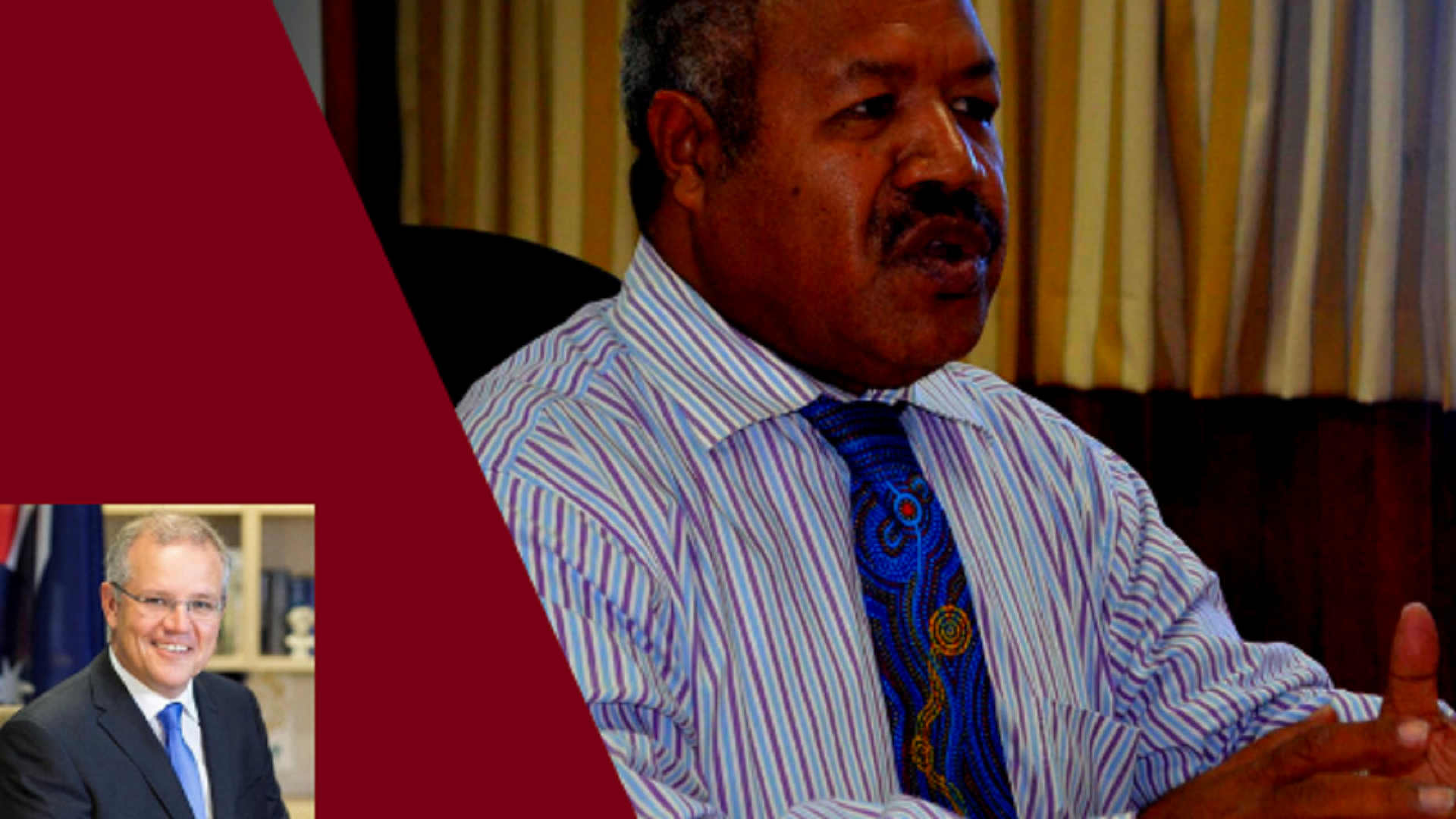By Scott Waide, EMTV News – Port Moresby
A PNG member of parliament has lashed out at Australia over its intentions to deploy troops to Papua New Guinea to ‘counter China’s influence’ in the Pacific.
The Governor of the National Capital District, Powes Parkop, said Australia’s intentions were selfish and that the apparent leak to the media was meant to influence a PNG government decision.
“The manner in which this information has been released is meant to preempt a policy decision which is still under consideration,” Parkop said. “Our Minister for Defence has stated that the discussions are still in its early stages.
“It’s a feeling of déjà vu again like the early stages of the Manus refugee deal.”
It has become clear that negotiations for an Australian military presence have been ongoing for several months between Australia and the PNG. The PNG government, however, has remained largely silent. Defense Minister, Solan Mirisim, only responded when questions were put to him about the proposed base on Manus.
Mirisim said the base would serve as a “training facility.”
Two weeks ago, Governor Powes Parkop told a government caucus meeting that he was against any Australian troop deployment unless the details and the benefits were stated clearly.
“To me, the intentions are not in the interests of the people of Manus or Papua New Guinea as a whole. It is a knee-jerk reaction to the Chinese presence in the Pacific and around the world. It’s a little too late. It serves only the interests of the US and its allies.”
Australia is eyeing the PNGDF’s Lombrum naval base as a possible location for its troops.
Lombrum was established in the second world war. The land area is bigger than that of either two army bases in Port Moresby. Lombrum is also near an old airfield that was used by the US to fly bombing raids into the Philippines during the war. More than 70 years after WW2, Lombrum remains a base of strategic military importance not just to PNG and Australia but also to the US, and China.
Papua New Guinea is caught in a tussle between regional powers.
For Papua New Guinea, the question is: What are the benefits of having an Australian military base? So far, China has proven to be the more favorable partner in terms of aid and military support.
Governor Parkop feels that PNG is being used again by Australia and has little to gain in through this arrangement in its present form.
“Whether it’s the US, Australia or China, we must have opportunities for our young men and women. They must be allowed to serve in their militaries.”
Despite the fact Australia has long been the traditional trade and military partner, many within Papua New Guinea feel the arrangements are still rigidly controlled. Former PNGDF commander, retired Major-General Jerry Singirok, says Australia’s intentions may be good but he wants to see the revamp of the PNGDF’s capabilities as part of the deal.
Singirok’s concerns stem from a 20-year neglect of the region by Australia. After the Singirok led Sandline operation of 1997 that expelled South African mercenaries and ended the Bougainville War, Australia funded the downsizing of the PNGDF out o of a general fear of a military coup similar to Fiji.
“Many people overseas don’t understand that a coup will never happen in PNG. We are too fragmented but we are one people.
“Because of that fear, Australia funded the downsizing of the PNG Defense Force. It also funded the destruction of hundreds of weapons systems. It reduced the PNGDF to bare bones. We don’t have a fighting force anymore because of that decision.
“Australia has also been very selective in what kind of assistance it gives to the PNGDF. They stopped training our pilots and aircraft engineers. We don’t have aircraft. The only helicopter we have operating is wet-leased from the ADF and operated by civilian contractors.”
Singiriok says Australia has an obligation to help rebuild the PNGDF. He also says the PNG government also has to step up to the challenge and increase defense spending so the PNGDF is able to meet the challenges of the 21st Century.


